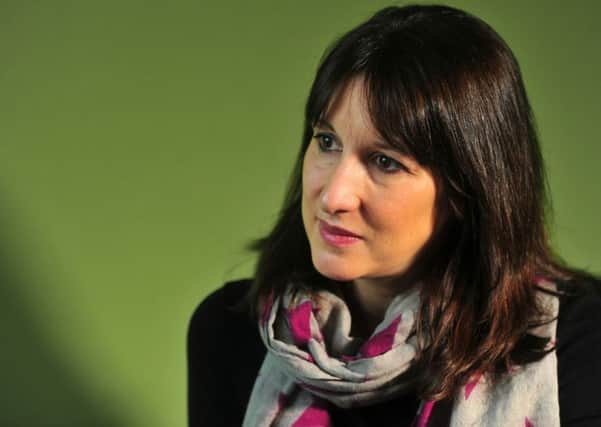Rachel Reeves: Playing fair in the growing gig economy


But the percentage of self-employed workers saving into private pension schemes has shrunk from 23 per cent in 2010 to 16 per cent in 2015 as many struggle with the insecurity and low wages that often accompany work as an independent operator.
Fewer self-employed people can buy their own homes and getting a mortgage can be much harder. Some enjoy the freedom of working independently, but it is a precarious lifestyle for many others.
Advertisement
Hide AdAdvertisement
Hide AdI heard recently from entrepreneurs in Leeds how challenging the world of self-employment can be. They face challenges including late payers, poor access to funding for start-ups and the complex tax system. Yet, it is clear the growth in self-employment will continue and could soon overtake public sector employment when it comes to its share of the labour market.
That’s why I published a pamphlet with the Social Market Foundation think-tank seeking to address some of these challenges and present potential solutions. I was delighted the contributors included Rachael Dunseath, the founder of Harrogate-based Myroo Natural Skincare and Jane Walton, a non-executive director of Yorkshire Mentoring.
In her chapter, Rachael drew on her experiences and said “tax breaks in the early stages of starting a business would foster growth and encourage entrepreneurship which is a tough gig at the best of times”.
Rachael, who has two young daughters, also called for more government support for female entrepreneurs to help with childcare and deal with the problems caused by the lack of maternity pay.
Advertisement
Hide AdAdvertisement
Hide AdMeanwhile, social entrepreneur Jane Walton said it was vital to prepare young people with the skills needed to set up on their own.
She argued: “We need to teach young people not only about the industry itself but about the practicalities of running a business such as how you fill in a tax return.”
In 2011, there were 1.5 million more people working in the public sector than those who classed themselves as self-employed. But the Office of Budget Responsibility estimates the two sectors will be of equal size by 2021.
These seismic changes to our economy and employment market come with a series of important challenges for the government, business and the self-employed ahead of next week’s Budget.
Advertisement
Hide AdAdvertisement
Hide AdWe need to examine ways we can make sure the self-employed can better save for the future and their retirement, buy their own homes, and benefit from basic workers’ rights.
Perhaps the biggest challenge is how to ensure workers get proper protection and cope with issues like how they cope with sickness and or the need for time off to have a baby.
One option would be to level the playing field between the employed and the self-employed when it comes to national insurance contributions (NIC) and strengthen the argument for the self-employed to receive other state benefits.
Yet, for many, a mandatory increase in NIC would create significant financial difficulties. And, a voluntary system whereby a self-employed person could make contributions that covered, for example, sick pay and maternity pay, might see people only contribute if they believed they would directly benefit.
Advertisement
Hide AdAdvertisement
Hide AdBut the Government must not shy away from finding a solution just because it is a tricky area. I would like to see the Government look at whether a voluntary NIC contribution system could be extended to cover sick pay and parental leave for the self-employed.
Ministers should also re-order their priorities when it comes to business and boosting our economy. The Government’s plan to cut corporation tax does nothing for the self-employed.
Instead of cutting corporation tax further, the government should help small businesses and the self-employed with reductions in national insurance for small businesses employing the first worker or business rate cuts for new firms – the sort of tax breaks that Rachael Dunseath is advocating.
On pensions, the services of the workplace pension scheme NEST should also be targeted at the self-employed so that they have the option and ease of contributing to a pension.
Advertisement
Hide AdAdvertisement
Hide AdAnd, we should be seeking to ensure more self-employed people can get affordable mortgages.
The Council for Mortgage Lenders should look at how self-employed people can be helped without a return to the self-certification mortgages that created havoc during the financial crisis.
There should be mentoring schemes at universities to help those thinking of working for themselves. Job centre advisers should also be trained to help people who are interested in self-employed work.
Yet, what is clear is that policy in Westminster cannot solve all the challenges alone. We must ensure the self-employed are supported locally – from shared space buildings to help them cut costs to support from businesses, the third sector, trade unions and co-ops.
Advertisement
Hide AdAdvertisement
Hide AdOne solution to the problem of late payers could be an escrow system that would see an agreed sum paid into an account before the work starts. The cash is then released to the independent contractor when the work is finished.
These are a few of the ideas we should be looking at to help the self-employed and improve the rights of those working in the gig economy.
We must have a balanced, growing economy that offers the same opportunities to the self-employed as workers in other sectors.
Rachel Reeves is MP for Leeds West and a member of the Treasury Select Committee.